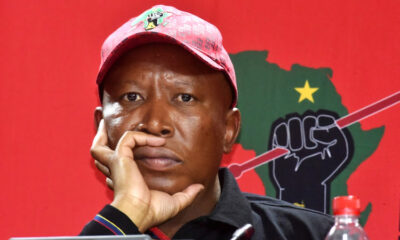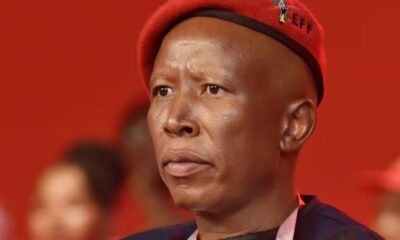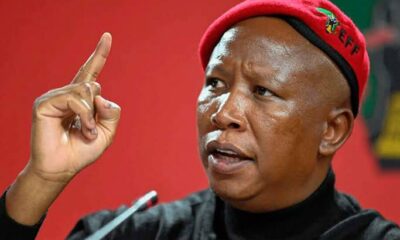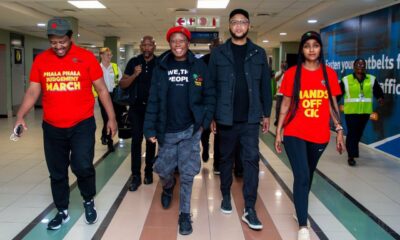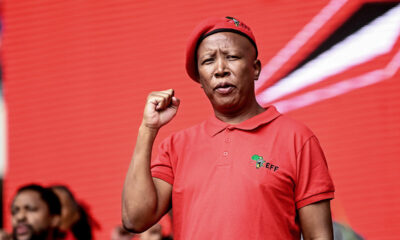News
Julius Malema: ‘There Is No White Genocide’, EFF Leader Fires Back on Youth Day
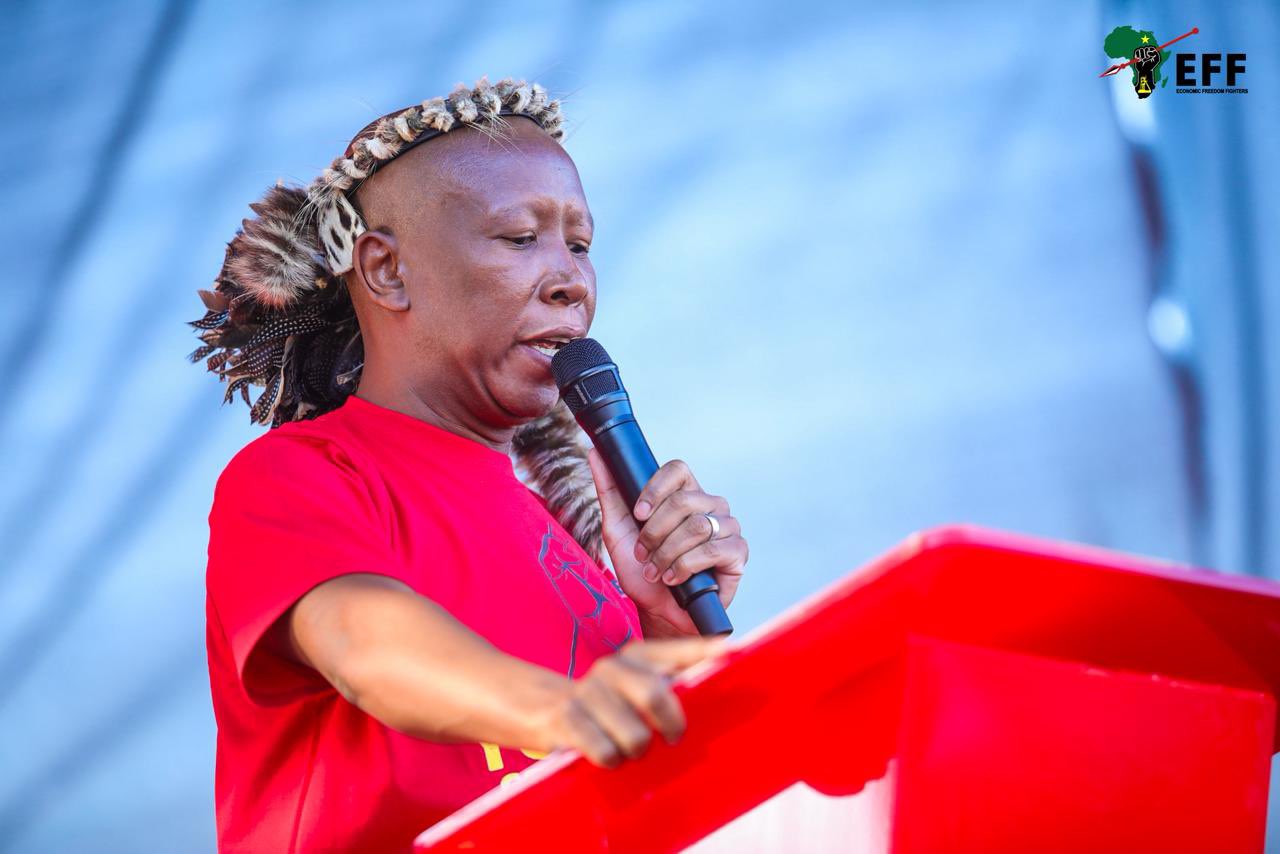
EFF Youth Day rally in Durban becomes fiery platform for anti-imperialism, land reform, and free education
South Africa’s Youth Day is typically a time to reflect on the sacrifice of young people in the 1976 Soweto uprising. But this year, at the King Zwelithini Stadium in Umlazi, Durban, it became something else too: a full-throated political rebuttal from Economic Freedom Fighters (EFF) leader Julius Malema.
With thousands of red-clad supporters in the crowd, Malema took the stage on June 16 and didn’t hold back. His message? The youth must “pick up the spear,” not only against poverty and inequality, but against those who misrepresent South Africa’s struggle.
Debunking ‘White Genocide’ Claims
One of the day’s headline moments came when Malema directly addressed accusations circulating abroad — particularly in the US ,that white South Africans are under violent threat.
“There is no white genocide,” Malema said, to roars from the Umlazi crowd. “No one wants to kill white people. We are simply saying: let’s live together, but that requires justice. That means returning what was stolen from us.”
It was a pointed rebuttal to American conservatives, particularly Donald Trump, who recently used a visit from President Cyril Ramaphosa to air clips of Malema singing the apartheid-era protest song “Kill the Boer.” Trump used the moment to accuse South Africa’s leadership of allowing lawless land grabs and targeting white farmers.
Malema was unapologetic. “The song wasn’t written by me. It was sung by those who fought apartheid. It is part of our heritage, and we will defend it,” he said.
Ramaphosa, Trump, and an ‘Oval Office Ambush’
Malema went even further, accusing Ramaphosa of allowing South Africa to be humiliated by Trump during his recent visit to Washington. “He said he wouldn’t be bullied, but when he got there, he was shaking like a small boy,” Malema said. “Trump disrespected our president by forcing him to watch propaganda in the Oval Office. No one treats a president like that.”
The EFF leader painted the episode as symbolic of broader American interference in African affairs. “We must never be dictated to by the US,” Malema declared.
A Red Warning to Elon Musk and Starlink
And then came Elon Musk.
Malema warned that Starlink — Musk’s satellite internet provider — would “never operate in South Africa” if it continues to sidestep black ownership requirements.
“Musk is scared of the EFF,” Malema said, laughing off the billionaire’s influence. “Starlink must comply with our laws. If it doesn’t, it must stay out.”
This marks the latest flashpoint in the ongoing fight over local participation in tech and telecoms. The EFF has long insisted that any foreign company doing business in South Africa must meet minimum black ownership and transformation standards.
A Call for Decolonised Education and Free WiFi
Much of Malema’s address focused on the core issues of youth development — and education was front and centre.
“We don’t want education like in 1976,” he said, referencing the apartheid regime’s Bantu education policy. “We want free, quality, decolonised education. And we want every child to eat at school. We want free WiFi at all public facilities, including clinics.”
He invoked the legacy of Steve Biko, saying: “Your black consciousness still lives in us. The 1976 generation inspires us.”
On the ground, the message resonated. In Umlazi, one of South Africa’s largest townships, poor education infrastructure and digital exclusion are daily struggles. Many residents still rely on expensive mobile data, and students often study without access to the internet or a stable classroom.
Malema’s War on ‘Expiring’ Data
Then came one of the more light-hearted yet relatable moments of the day.
“Why does data expire?” Malema asked. “Is it milk? Is it bread?”
The crowd roared with laughter and applause.
His point was simple: affordable internet is no longer a luxury, but a necessity. In a country where job hunting, university applications, and even government services are online, the cost of data is directly tied to opportunity.
“Data must fall!” he shouted. “We use data to find jobs, to learn. Expensive data is oppression.”
Local Voices React
?️ “Malema just said what a lot of young people are feeling. No jobs, no WiFi, no justice. We’re still fighting.” – @Nandi_Mhlabane, Durban
?️ “Trump must stay out of SA politics. That Oval Office stunt was disgusting.” – @Kabelo_ZA
?️ “The ‘Kill the Boer’ song is part of our history. Stop weaponising it.” – @Thulani4EFF
A Rallying Cry for the Future
Love him or loathe him, Malema knows how to tap into the emotional pulse of South Africa’s youth. At this year’s Youth Day rally, he blended old liberation narratives with today’s struggles — land, digital equity, education — while taking fire at global powerhouses like Trump and Musk.
Whether his words spark deeper policy shifts or not, one thing is clear: in Umlazi, Julius Malema reminded South Africans that the fight for dignity, land, and opportunity is far from over.
{Source: IOL}
Follow Joburg ETC on Facebook, Twitter , TikTok and Instagram
For more News in Johannesburg, visit joburgetc.com

